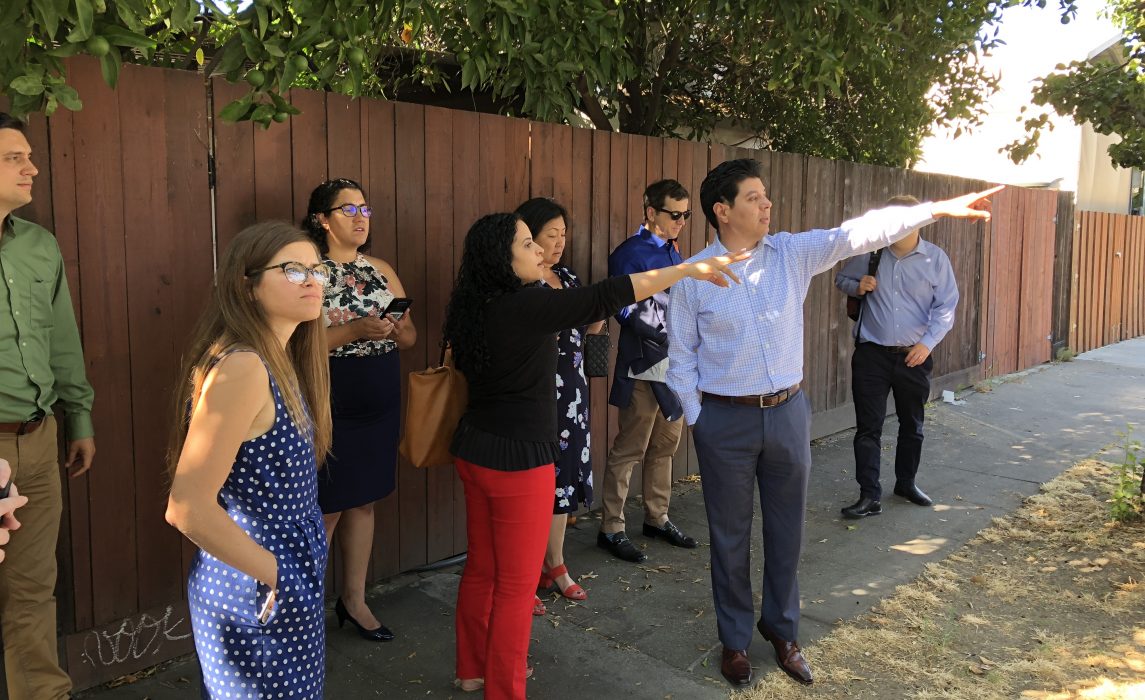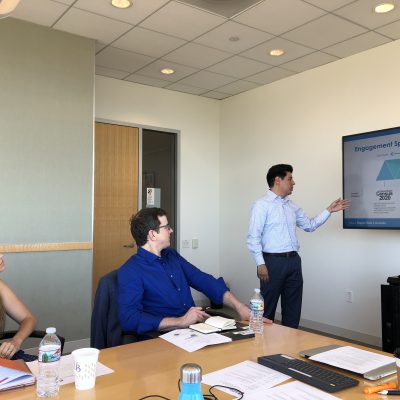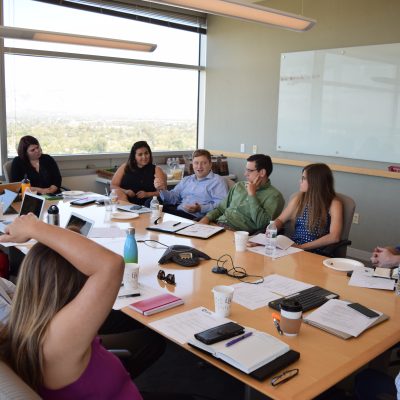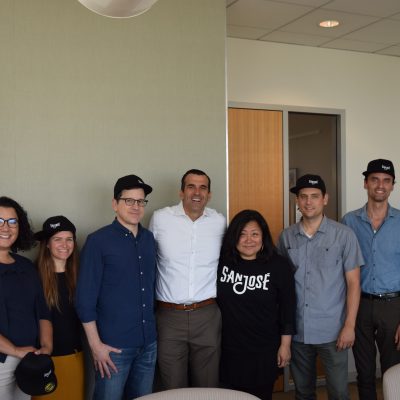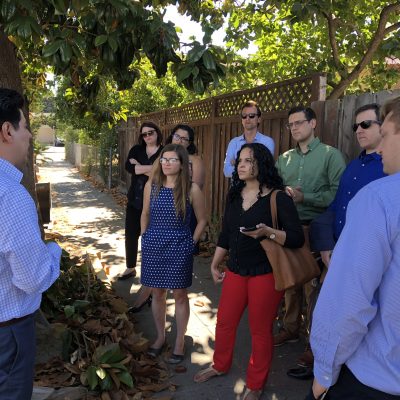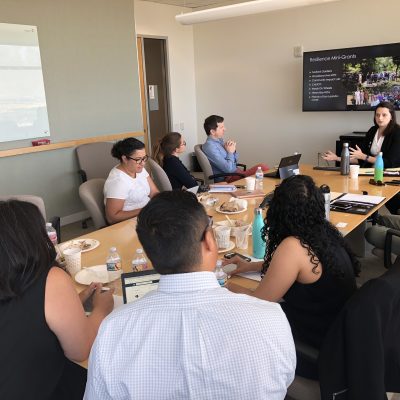Four Lessons from Our Study Tour in San Jose
In August, Cities of Service brought leaders from eight cities together in San Jose for our first Study Tour. The two-day convening was a chance for some of the grantees in our Prepared Together or Resilience AmeriCorps programs to share what they’d learned about working with citizens to make their cities stronger and more resilient.
“When I go to a Cities of Service event, there are always people I can learn from,” said Ona Brause, Chief of Staff for the mayor of Anchorage, Alaska. “The small size of the group enabled us to develop relationships and ask questions we may not have asked in a larger setting.”
Attendees dug into the creative ways that San Jose engaged community groups, nonprofits, businesses, and residents to make its #BeautifySJ and other resilience programs successful. For example, the city worked with Niantic—the developers of the popular Pokemon Go game—to increase turnout at community events by placing rare Pokemon in the area for players of the game to collect.
Delaney King, a Study Tour participant and Civic Sparks Fellow from nearby San Leandro, explained that in her city, community concern for disaster preparedness and extreme weather acted as a catalyst for the city to connect with residents for a variety of projects, including their adopt-a-drain cleanup program.
Attendees appreciated the opportunity to learn directly from others doing similar work on the ground. In person, they could easily delve into the nuts and bolts of working with city residents, such as best practices for giving mini-grants to community groups and engaging retired citizens as volunteers.
“I’ve been surprised about the immediately usable tidbits I’ve learned,” said Nathaly Agosto Filion, Chief Sustainability Officer for Newark, New Jersey. “I’m walking away with of a number of things that I would try next week.”
Below are four lessons we took away from the Study Tour that can help cities ensure that their citizen engagement projects are successful.
Bring partners in early. Involving multiple departments, agencies, and community based organizations in discussion and decision making early on will reduce confusion and potential roadblocks and make your program more sustainable in the long run.
For example, when San Jose recruited citizens to collect information about unpermitted and unconventional housing to prepare for the census, they knew this data had to be kept confidential. It could only go directly to the Census Bureau and could not be shared with other departments like code enforcement who are responsible for ensuring residences are correctly permitted. Code enforcement officers participated in discussions about this early on, so they understood the reasoning and did not raise objections later.
Invite managers to your meetings. Notify department heads, but also be sure to invite the department managers to your project meetings. They are closest to the day-to-day work and may have questions and insights department heads do not. And when leaders change, the staff can continue the work. Their involvement and investment in the project will help ensure its sustainability.
Anchor institutions matter. Who is the anchor institution in your community? A university? Corporation? Hospital? Museum? Find one, two, or more. They can be invaluable partners and can help with promotion, volunteer recruitment, and funding. As stable institutions, they can also help ensure sustainability when city leaders or budgets change. In San Jose, the public library is one of the institutions playing this role. Library locations are meeting places where the city can engage with residents, and the library has an associated foundation, which is a source of funding for engagement efforts.
Be creative with your resources. Though San Jose is a big city and there are lots of tech sector resources in the community, the mayor’s office has a limited budget and staff. They bring in fellows, AmeriCorps VISTA members, retired professionals, and other community members into city hall to help. This is a good lesson for every city. Work with universities, many of which have special programs (i.e. Frugal Innovation Hub at Santa Clara University) or consider recruiting retired executives who are looking for a new challenge.
Although the Study Tour lasted only three days, the relationships formed there are sure to continue. Cities of Service convenes coalition cities online and off so that they can learn from their peers and create connections that allow them to rely on one another for support and advice all year long. To learn more about becoming part of our coalition or the resources we offer members, contact us at [email protected].

